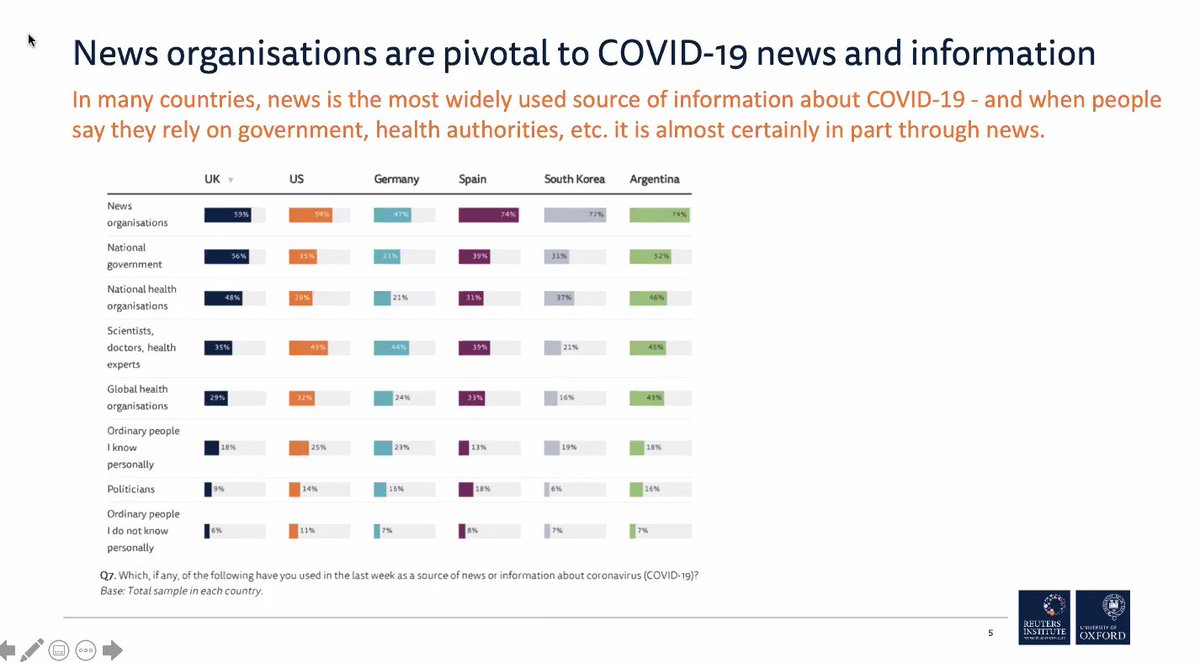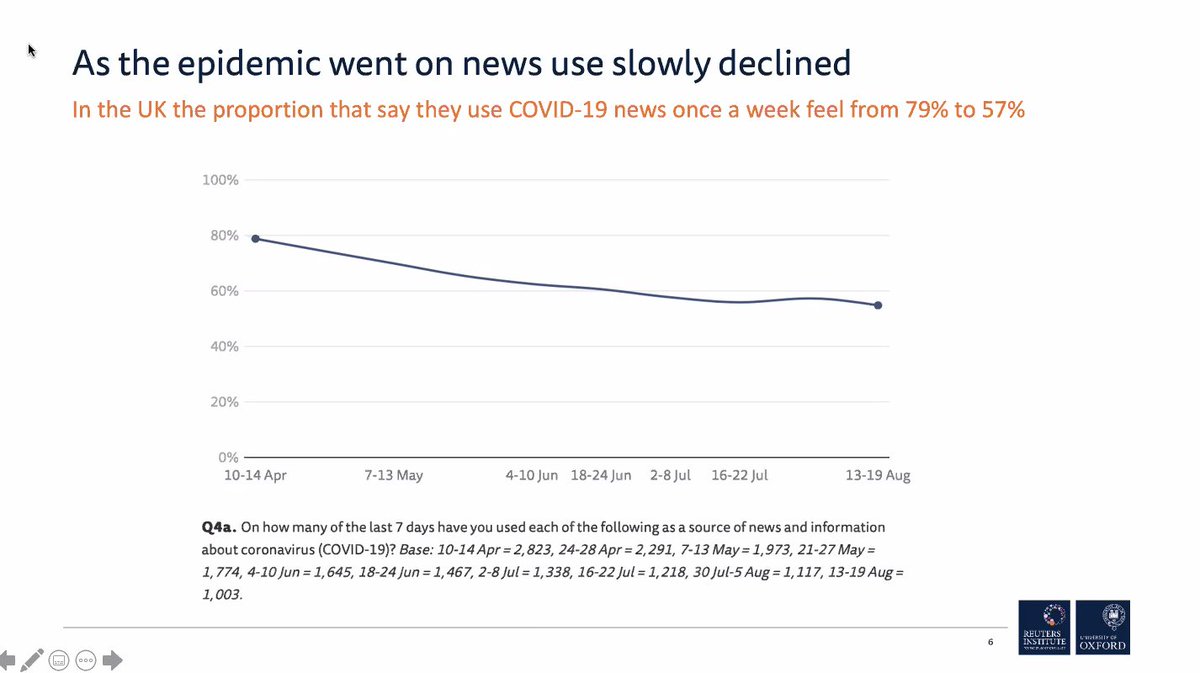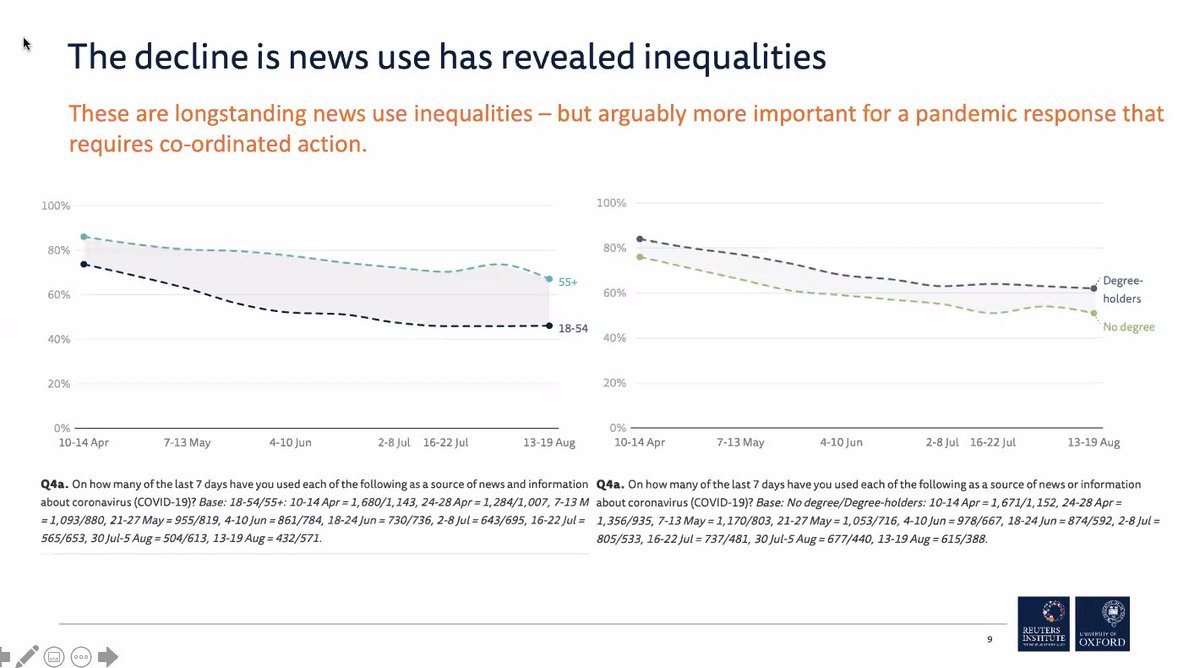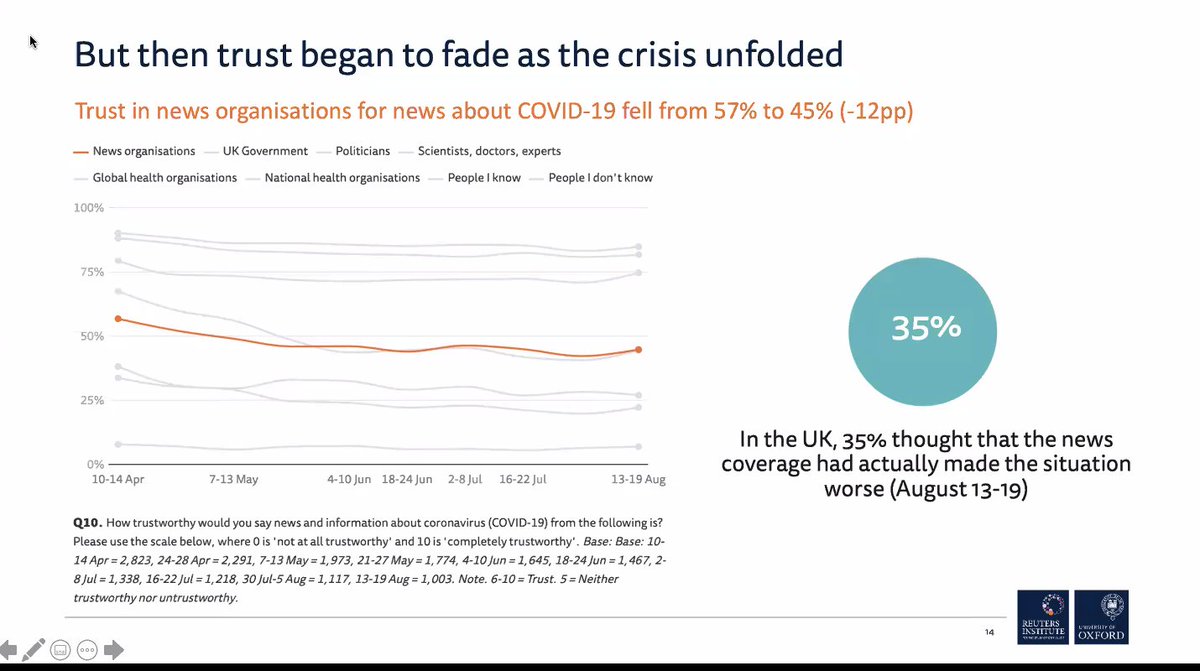I& #39;ll be attending a few panels/keynotes from the #JournalismInCrisis conference over the next few days--first up @dragz (Richard Fletcher) from @risj_oxford sharing highlights from this study https://bit.ly/34inxVa ">https://bit.ly/34inxVa&q... -- Navigating the Infodemic, and providing an update on findings
. @dragz says from beginning of Coronavirus crisis was recognized as both health & communications emergency, WHO recognized in February it was also fighting "infodemic," researchers set out to examine how people were getting their news, if they trust it, what they learned
...another study also being referenced, https://bit.ly/37sqeWl ,">https://bit.ly/37sqeWl&q... more narrow focus but more in depth @dragz notes that neither give complete picture but useful resources nonetheless, slide shows how news orgs pivotal to getting info re Covid 19 at first
This aligns with my own research re importance of mainstream media re amplifying info, but @dragz says that as pandemic carried on, consumption of Covid-19 stories in UK went down, noting other issues were erupting
. @dragz says news avoidance an issue: respondents said it was depressing, felt nothing could be done with new info, news wasn& #39;t meeting needs, says key point is different groups turn away from news at different speeds-age demographic young vs. old, education, income all factors
. @dragz says @risj_oxford research showed 38% of people in 40 markets trusted news, but almost twice that in Covid-19 survey trusted news, cautions data aren& #39;t directly comparable but showed interesting trend--however, latest research on UK showed trust was waning again
. @dragz say compared to politics, people were quite knowledgeable about Covid-19, and there was willingness, based on UK data, to follow gov& #39;t prevention advice communicated through news media--cautions though these were self-reports which could be more "theoretical willingenss"
. @dragz says now thinking about how to deal w/ information inequality around Covid-10, how to serve parts of the public being underserved, eg., younger, lower income. Suggests different platforms, more popular outlets that may not be considered strong reporting/journo outlets
I think that last point is really important--I have a discussion thread in my class called "show me something newsworthy on TikTok"--many students get most of their info there, others via Snapchat, we have to go where the audience is
. @dragz wonders if we will see different types of coverage based on question re. success of Atlantic based on doing bigger picture analysis pieces, but says targeting people who may not be able/interested in reading longer articles very important, need to target underserved
. @dragz in answer to my question re whether people reporting they haven& #39;t been exposed to misinformation recognize if they& #39;ve seen it says new research shows younger people are more susceptible, did a quick search, found this on @ConversationCA https://bit.ly/3kkzVJW ">https://bit.ly/3kkzVJW&q...

 Read on Twitter
Read on Twitter





